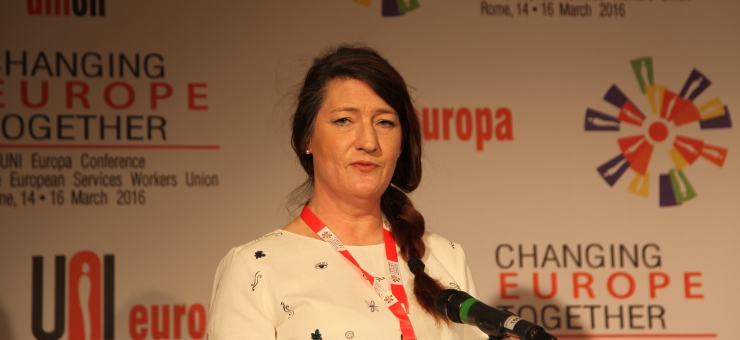MENU
Accès Affiliés
Login
Login

Equal work for equal pay – this was the demand of union leaders as the UNI Europa Women’s Conference grappled with issues of gender equality in Rome.
Women in Europe earn on average more than 16% less than men or 84 cents for every €1 earned by men.
Nordic countries tend to rank higher in terms of gender equality but Handels President Susanna Gideonsson said that the gap still needs to be tackled at all levels of society.
“Men have access to opportunities to which women are denied,” said Gideonsson, whose union represents Sweden’s commercial workers. “The Swedish picture shows that the link between wage levels and the proportion of women in the profession is also clear - the greater the proportion of women, the lower the average wages.”
Women in Sweden earn on average 87% the wages of men but when this figure is adjusted to take into account the widespread part-time work undertaken by women, actual income is at around 73%. In addition, jobs in female-dominated sectors are generally more precarious.
A pay gap now means a pension gap in later life and the union tools needed to combat such injustices, Gideonsson said, are the same as with other workplace issues - organising, collective bargaining, and, ultimately, industrial action.
“The fight for equal pay is not a women’s issue, it is a core trade union issue,” she said. “This is not something we do on the side, it is not a work based on other values than our basic values, and it is not a problem we attack with entirely different tools than we use in our other trade union work.”
“It is by organising a large percentage of workers that we can make our demands heard and it is through collective bargaining that we can change the pay structure.”